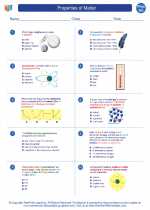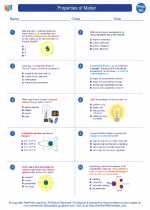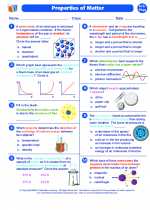Decomposition in Physics
Decomposition refers to the process in which a complex substance breaks down into simpler substances or elements. This process can occur through various means, such as chemical reactions, nuclear reactions, or even natural processes like decay.
Chemical Decomposition
In the context of chemistry and physics, chemical decomposition occurs when a compound is broken down into simpler substances through a chemical reaction. This can involve the breaking of chemical bonds within the compound, leading to the formation of new substances.
Example:
One common example of chemical decomposition is the electrolysis of water, in which water (H2O) is broken down into its constituent elements, hydrogen (H2) and oxygen (O2), through the application of an electric current.
Nuclear Decomposition
Nuclear decomposition, also known as nuclear decay, occurs when the nucleus of an atom undergoes a spontaneous transformation, resulting in the emission of radiation and the formation of new elements or isotopes.
Example:
One example of nuclear decomposition is the alpha decay of uranium-238, in which the uranium nucleus emits an alpha particle (consisting of two protons and two neutrons) to form thorium-234.
Study Guide
- Define decomposition in the context of physics and chemistry.
- Explain the difference between chemical and nuclear decomposition.
- Provide examples of chemical and nuclear decomposition processes.
- Discuss the significance of decomposition in understanding the behavior of substances and nuclear processes.
- Explore real-world applications of decomposition, such as in environmental processes and industrial reactions.
◂Physics Worksheets and Study Guides High School. Properties of Matter

 Worksheet/Answer key
Worksheet/Answer key
 Worksheet/Answer key
Worksheet/Answer key
 Worksheet/Answer key
Worksheet/Answer key
